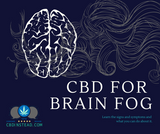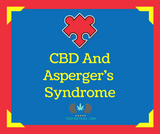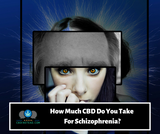When you have a child with autism, you start to notice that they do things differently compared to other kids. This is an adjustment that needs to be made, but it can be confusing wondering why your child can’t look you in the eyes while other kids have no problem doing that when their parents. Not knowing why your child is behaving in certain ways can bring on anxieties involving misconceptions. Here are four common symptoms found in autism and what we know about the reasoning behind them so far.

1. Problems with Eye Contact
Some children with autism have a difficult time maintaining or starting eye contact with others. These children can become so uncomfortable to the point of reacting in outbursts. While some used to think that lack of eye contact was due to lack of empathy, we know this isn’t the case.
When someone is on the spectrum, looking at the region of the face that has the eyes can cause stress and discomfort because of the subcortical system. The subcortical system is made up of many regions of the brain, including the limbic system.
The limbic system is what controls emotions, memories, and stimulation. Studies have shown that regions in the brain like the limbic system are different in the brain of someone who has autism, which may contribute to the discomfort associated with eye contact.
2. Compulsive Behavior

If your child has autism, they may have habits that they compulsively do or have things they compulsively learn about. One of the things about people with autism is they have the ability to focus in on something in a way we couldn’t ever comprehend, however, this can get in the way of everyday living. Scientists have discovered that this behavior is because of differences in the autistic brain.
While studying the similar brain differences in people who have ADHD, OCD, and autism, they found that there was a difference in white matter in the brain. The white matter is a connection of nerve fibers that enable communication throughout, either through different regions or another hemisphere. They found that the white matter that connected the right and left hemisphere of the brain was lacking in comparison to healthy controls. This lack of connections causes the brain to poorly function which can cause behavioral issues like compulsion, social difficulties, and attention issues.
Another thing that OCD and autism have in common is dysfunction in the basal ganglia, which is also a part of the subcortical system. The basal ganglia are what helps you control impulses you have. You see a cookie on the counter, but you know you’re on a diet, so you turn it away. When your basal ganglia don’t work the way it is supposed to, the desire and urge are stronger than your brain’s power to say no. Many people with OCD compare a compulsion to a sneeze making you feel uncomfortable until you carry out the compulsion. This is similar to what happens to some people on the spectrum.
3. Unique Speech Patterns
Some individuals with autism won’t speak at all while others may have rich and colorful vocabularies that could put someone with a Ph.D. to shame. Studies have shown that in the mind of someone who is on the spectrum, they may rely entirely on the right hemisphere while neurotypicals use the left hemisphere only using the right hemisphere to pull information to solve complexities of language like interpreting words with multiple meanings. Because they may have less white matter that people who aren’t on the spectrum, this can make speech particularly more difficult.
Researchers also believe this is because of the common lack of social skills associated with autism. By not imitating or repeating what they hear or only repeating what is said to them, they aren’t learning how to put cohesive sentences together.
4. Sensory Sensitivity

Another common symptom of autism is sensory sensitivity. This is when they have an exaggerated negative response to a sensory stimulus like a sound, sight, smell, taste, or touch. The areas of the brain where they found processing wasn’t as efficient were in the amygdala, which controls the fear response, and the prefrontal cortex, which controls complex behaviors, planning, and contributes to personal development. They found that even patients with autism who’s anxiety weren’t as bad as others, their brain regions were still significantly over-reactive to sensory stimuli.













